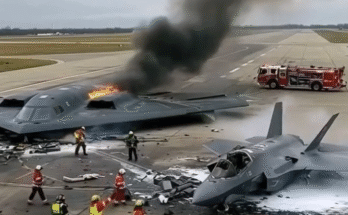Donald Trump and the Gaza War: U.S. Influence, Ceasefires, and Global Reactions
The Gaza War, now entering its second year, has become one of the most devastating and geopolitically charged conflicts in recent history. With over 66,000 Palestinians killed and Israel continuing its military campaign in Gaza, the humanitarian toll is staggering. Amid this crisis, U.S. President Donald Trump has stepped into the spotlight with a bold ceasefire proposal that could reshape the trajectory of the war and redefine America’s role in Middle Eastern diplomacy.
Trump’s Ceasefire Proposal: A 20-Point Plan
President Trump unveiled a sweeping 20-point peace plan aimed at ending hostilities between Israel and Hamas. The proposal includes:
- An immediate ceasefire across Gaza
- The release of all hostages within 72 hours
- Hamas’s disarmament and renunciation of armed resistance
- A phased Israeli military withdrawal from Gaza
- The establishment of a transitional authority led by Trump himself, backed by international monitors
The plan has received support from Israeli Prime Minister Benjamin Netanyahu and several Western and Arab governments. Trump has positioned himself as a direct mediator, stating that Hamas has “three or four days” to accept the deal or face “a very sad end.”
U.S. Influence and Strategic Interests
Trump’s involvement reflects a broader shift in U.S. foreign policy under his administration. Unlike previous presidents who relied heavily on multilateral diplomacy, Trump has taken a more unilateral and personal approach. His peace plan bypasses traditional institutions like the United Nations and instead relies on direct negotiations and leverage over regional allies.
The U.S. has used its influence to pressure Egypt, Qatar, and Turkey—key interlocutors with Hamas—to push for acceptance of the deal. American diplomats have also worked behind the scenes to secure Israeli cooperation, offering military aid and intelligence support in exchange for a commitment to the ceasefire terms.
Critics argue that Trump’s plan prioritizes Israeli security over Palestinian sovereignty, particularly the demand for Hamas’s disarmament without guarantees of political representation or long-term autonomy. Supporters, however, view the proposal as a pragmatic step toward ending a brutal war that has destabilized the region.
Hamas’s Dilemma
Inside Hamas, the ceasefire proposal has sparked intense debate. One faction, led by political chief Ismail Haniyeh, is reportedly open to accepting the deal under international guarantees. Another faction, aligned with military commander Mohammed Deif, rejects the disarmament clause and views the plan as a surrender.
Hamas’s leadership is currently in Doha, Qatar, holding emergency meetings with mediators from Egypt and Turkey. The group faces a difficult choice: accept the deal and risk internal fragmentation, or reject it and face intensified Israeli attacks with dwindling resources and mounting civilian casualties.
Israeli Military Campaign and Civilian Toll
Israel’s military campaign has escalated dramatically in recent days. Airstrikes have targeted Gaza City, including schools, hospitals, and refugee camps. Al-Falah School, sheltering displaced families, was hit by missiles, killing six civilians and injuring dozens. Al-Shifa Hospital, Gaza’s largest medical complex, has been bombarded, forcing emergency crews to bury unidentified bodies in mass graves.
Defense Minister Israel Katz has declared that any Palestinians remaining in Gaza City will be considered militant supporters and face the “full force” of Israel’s offensive. This statement has drawn condemnation from human rights organizations, who warn of collective punishment and violations of international law.
Over 400,000 Palestinians have fled northern Gaza, but hundreds of thousands remain trapped, unable to afford evacuation or unwilling to leave their homes. The humanitarian crisis is deepening, with food, water, and medical supplies running dangerously low.
Global Reactions and Diplomatic Pressure
The international community is deeply divided over Trump’s ceasefire plan and the broader conduct of the war. European nations like France and Germany have cautiously welcomed the proposal, urging Hamas to consider it seriously. Arab states, including Saudi Arabia and the UAE, have expressed support for a ceasefire but remain wary of Trump’s leadership role.
The United Nations has called for an immediate cessation of hostilities and the protection of civilians. UN Secretary-General António Guterres warned that Gaza is on the brink of “total collapse” and urged all parties to prioritize humanitarian access.
Meanwhile, activists and civil society groups are mobilizing to deliver aid. The Global Sumud Flotilla, carrying humanitarian supplies, has entered high-risk waters near Gaza. Israeli naval forces have reportedly disabled communications and threatened to intercept the convoy. Spain and Italy have sent ships to monitor the flotilla, though Italy has since withdrawn its support.
David Adler of Progressive International, aboard the flotilla, posted a “final letter” warning of imminent Israeli action and calling for global solidarity.
Trump’s Political Calculus
Trump’s intervention in the Gaza War is not only a diplomatic maneuver but also a political calculation. With the 2026 U.S. elections approaching, Trump is positioning himself as a global peacemaker and statesman. His supporters praise his boldness and willingness to challenge entrenched diplomatic norms.
However, critics argue that Trump’s plan lacks legitimacy and risks undermining long-term peace efforts. The absence of Palestinian representation in the drafting of the proposal has raised concerns about its viability and fairness.
Trump’s decision to lead the transitional authority in Gaza has also sparked controversy. Some view it as a power grab, while others see it as a necessary step to stabilize the region and prevent further bloodshed.
The Road Ahead
The next few days will be pivotal. Hamas must decide whether to accept Trump’s ceasefire plan or continue fighting. Israel is poised to intensify its military operations if the deal is rejected. The U.S. is leveraging its diplomatic and economic power to push for resolution, but the outcome remains uncertain.
For the people of Gaza, the stakes could not be higher. The war has devastated communities, killed tens of thousands, and left millions traumatized. A ceasefire could offer a glimmer of hope, but only if it leads to meaningful political change and reconstruction.
As the world watches, the Gaza War has become a test of international diplomacy, humanitarian resolve, and the limits of American influence. Whether Trump’s plan succeeds or fails, it will shape the future of the Middle East for years to come.



